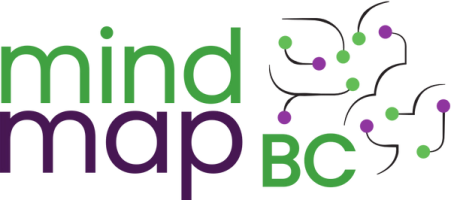Summary
- Travel to you, in-person fitting
- Services all of Vancouver Island
- Donated binders are free
- $43-$71
- Pay what you can available
2S/LGBTQ+ Affirming
- In-person
VI Binders is a volunteer-run, non-profit program set up to support primarily trans-masc and non-binary individuals who reside on Vancouver Island. We help these folx with access to affordable and safe gender affirming products. No one is turned away due to lack of funds. We collect gently used binders from members of the community who no longer need them. We also have new binders which can be purchased at a maximum price of our cost. VI Binders travels anywhere on Vancouver Island so that you can TRY THEM ON and find one that is best for YOU.
All funds raised go back into the program, towards purchasing new binders to distribute.
Want to learn more about this service’s work with Two-Spirit, trans, LGBQ+ people?
We invite all service providers listed on MindMapBC to answer the following questions. These questions were developed in collaboration with community members, researchers, and mental health and other service providers. They're intended to help us understand what a service provider or organization is doing to affirm and support sexual and gender diverse service users.
See below for responses for this listing.
Want to learn more about our screening questions and filters?
- Are the forms used in your practice inclusive of various sexual orientations and gender identities (e.g. opportunities to fill in different pronouns etc.)?
- Do you collect and use preferred names (rather than legal names) for all communications?
- Do you and your colleagues have experience providing services that support clients with navigating gender dysphoria*? *TransCareBC describes gender dysphoria as a term "intended to describe the distress some trans people experience with relation to their gender identity, particularly if they would like to transition but have not yet done so".
Yes
- Please tell us how equipped you feel to support a client in determining if/when their mental health symptoms are related to their gender-related experiences or other factors?
- Do you/your colleagues understand the difference between gender dysphoria and mental health conditions/symptoms that are unrelated to gender dysphoria or distress?
- Do you and your colleagues have experience working with people who identify as living with a disability or chronic illness? Please tell us more about your experience and any training you have received.
- Are you and your colleagues comfortable asking relevant questions about gender identity and sexual orientation?
- Do you offer Indigenous 2SLGBTQIA+ specific resources, for example Indigenous Elders or Knowledge Keepers?
- Do you and your colleagues ask clients about pronouns and use them appropriately?
Yes
- Are you and your colleagues aware of what specific barriers may exist for Two-Spirit, queer, or trans Indigenous individuals accessing your services?
- Are you and your colleagues aware of what specific barriers may exist for 2SLGBTQIA+ individuals accessing your services?
Yes
- Are you and your colleagues aware of what specific barriers may exist for trans individuals accessing your services?
Yes
- Are there clear anti-discrimination policies that include gender identity, gender expression, and sexual orientation in your organization or practice?
- Are all individuals involved in service provision actively engaged in decolonizing their practices and/or organization? If yes, please type below what actions you and/or your organization are taking.
My services are very specific but I do include a land acknowledgment on the website. I try to educate myself regularly to recognize what gaps I may be missing to serve those who are marginalized.
- Are all individuals involved in service provision actively engaged in anti-racist practices, policies, and systems in their care model?
Yes
Last updated: November 27, 2024
Request changes —

